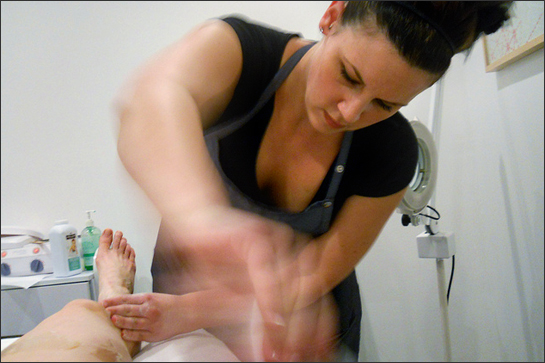Why are almost all the bloggers in the Life at Work section at BNET women? I’m worried, because it’s never good for one’s career to be in a room full of women unless you’re a model or a stripper. Because where there are women there are lower salaries.
This is not a case of discrimination. I mean, it’s not that men get paid more for the same work that women do. It’s that women choose to do different work. I interviewed Al Lee, the quantitative analysis genius who combs through salaries at PayScale, and among the fascinating things he told me was that women and men get paid similar amounts for similar work but that women pick lower-paying fields, and lower paying paths.
So, for instance, neurosurgeons are men and family practice doctors are women. And social workers are women and psychiatrists are men. Al says that the best thing women can do to increase their earning power is “to choose fields dominated by men right out of college.”
I have actually been given this advice often in my career. For example, mentors told me to stay in line for management positions where I would be responsible for profit and loss for the company (product manager, for example) rather than go into support roles where I help people become stars in profit and loss but get no direct credit myself (human resources, for example).
So I went into tech. All men. And I started doing venture-backed startups. All men. And when I have been in departments that were all women, I either quit or switched to another department. Really. I am not stupid.
But all that careful work throughout my career and now I’m writing with all women. I am sure this is not good.
I went over the BNET to investigate the situation and I stumbled on Kimberly Weisul’s piece titled,Why Mentoring Helps Men More than Women. I clicked, mostly because I am always worried about not having the right mentors.
It turns out, I probably don’t have the right mentors, because women connect with people lower on the food chain than men do. I panic. I need to connect with business writers who are not writing work life stuff. No. Wait. I need to connect with Eric Schurenberg, who is editor-in-chief of BNET. I need to go out to lunch with him and make him love me, and then he’ll think of me first when he creates the power-writer’s group that lives on the home page of BNET and pops up in everyone’s browser with the urgency of a subscribe-now button on a porn site.
The thing is that Kimberly concludes in her post that women are getting ripped off. It kills me. I don’t want to be writing next to women who believe that women are getting a raw deal and then complain about it. I don’t buy it.
As I said, there is not a salary gap between women and men. There is a competition gap between women and men. Women choose collaborative, feel-good jobs, like writing in the how-can-we-all-get-along-better section of BNET and men choose the competitive, dog-eat-dog jobs like managing all the feel-good writers on BNET. That link is to Paul Sloan. My editor.
Will he even let me run this piece? I don’t know. You know what? I can’t stop writing about him. I have a little crush on him even though he won’t answer his phone when I call and he always returns my calls at 6pm central when he knows I won’t pick up the phone because I’m having dinner with my family.
Women: It is very bad to write stuff about dinner with family if you are trying to get ahead. Do not do this. People assume that if you have kids you will do less work. This may or may not be true – I mean, doing less work. But what is true is that you should not talk about family at work if you want to be in the all-boys departments.
However it is okay to talk about crushes at work because it is more of a single person thing to do. I mean, everyone has crushes, but only single people talk about it. So I think it makes me have a better chance of getting out of the girl ghetto at BNET if I tell you that Paul is a little shorter than I am, and not as good-looking as I am, but still, he is fun and cute.


 Read more
Read more




